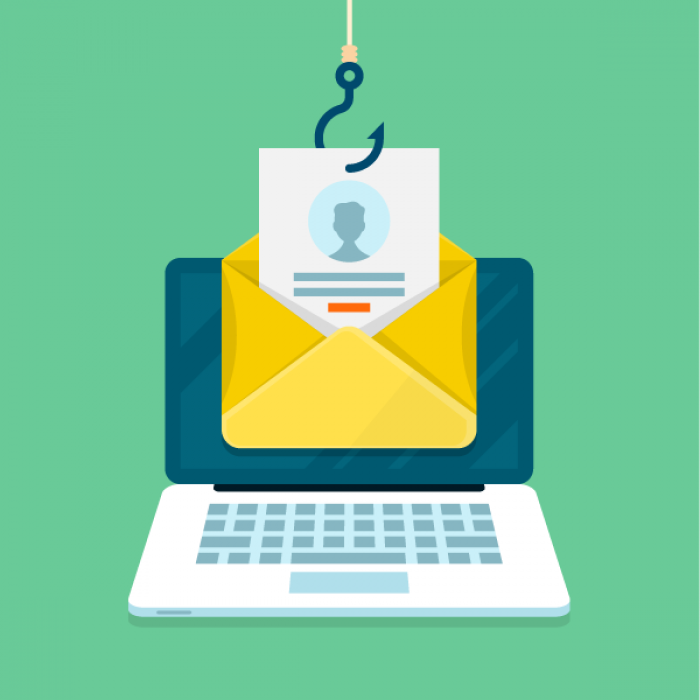One of the hardest things these days is avoiding scams. Especially email scams. We have to be so careful with what we say and do to avoid allowing anyone to use our information for their benefit. Because of all the recent security issues globally, here are a few tips regarding one of the main ways hackers get your information. Phishing.
What is Phishing? Phishing is someone trying to get you to do something or tell them something through email, text, or phone message, allowing them to compromise you in some way. As the name suggests, this typically works by dangling some bait in front of you. Cybercriminals are always looking for ways to trick you into giving up your personal information.
If you ever receive a message through email, text, or phone asking for personal information, you should:
STOP
Don't click anything, don't reply. Immediate attention is not needed.
Take a moment to think.
There will almost always be some sense of urgency in the messages. Phrases like, "Act now, your account has been compromised," "Your account has been closed," or "Your shipment is delayed, act now" are some examples. This sense of urgency will make you want to believe the message and act fast. You should do the opposite.
Contact the person or institution directly.
If you receive a message from a co-worker asking for your password, call that person on the phone. If you get a message from your financial institution claiming your account has been closed, and immediate action is needed, call them with the number on your statement. If you get a message from the postal service claiming your shipment has been delayed, and your information is needed, log in to your account and check for yourself. Checking with the source is the best way to avoid a phishing scam and get the truth firsthand.
Treat EVERY email as suspicious.
Some messages seem so unbelievably real you don't get suspicious, but you should have a sense of suspicion regarding every email or message. It is very easy for someone to create a duplicate of a trusted company's email. Take time to investigate the message and the source; be cautious of any scheme to get your personal information. Suspicion could help you stay secure.
Protect your information.
In short, don't send sensitive information such as bank details or social security numbers electronically. If necessary, be completely sure you know who you are sending it to and start a new email instead of replying to a thread. Check the email address carefully to ensure the person you want to receive the information is the only person who could receive the information, but if you can avoid sharing information this way, please do for your safety.
Check the incoming address.
Be mindful of who's emailing you. Always check email addresses for accuracy and look for signs of suspicious activity. For example, if an email is not in the format you'd expect, or a name appears to be misspelled, the email could be fake and could be looking to gain your information. Email addresses made up of random combinations of letters and numbers may also be suspicious. Making up an email address is one of the easiest things for hackers and spammers to do. Just because the email looks familiar does not mean you should trust it. Contact the source if you're unsure.
Don't click on links.
You're able to hover over links in an email without clicking them. If you hover over the link, it will show you the web address the link leads to in the bottom left of your window. The link could say www.google.com, but it could lead to a website completely different. If in doubt, open a new tab and Google the address you need rather than clicking on a link.
Don't open attachments.
Treat any attachment you didn't request as suspicious. Before opening, contact the sender or investigate the email further. Opening an unknown attachment could release a virus or allow someone to access your information. Be extra careful.
In short, the moral of the story is: don't give out your information. Many times trusted companies, organizations, or people will not ask for your passwords or personal information electronically because they know the dangers and want to keep you protected. Be suspicious of everything to ensure your safety. Stolen information can be extremely detrimental, and it's better to be overly cautious than not cautious at all.
Hopefully, we can help you stay safe in this crazy electronic world! If you find yourself in a situation where you believe personal information has been compromised, please contact the Credit Union immediately.


